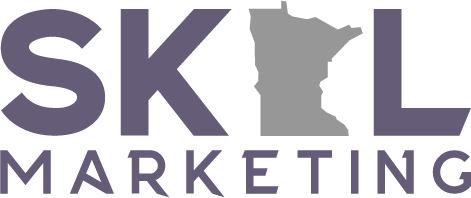Many people get incredibly excited when they first learn about the power of keywords, and rightfully so! Keywords are one of the fundamental concepts in understanding search engine optimization (SEO), and help shine a light on the Google search process that brings it from pure magic to, well… more of a puzzle. But we can better piece this puzzle together when we know which direction to travel, and that means doing proper research to ensure that you’re spending your time and money on keyword ranking and SEO practices that will give you more returns.
Before You Begin, Know the Goals–Yours AND Your Audience’s
It’s so tempting to start your keyword research by just tossing out ideas of keywords you like, or you’d personally use, or that you think would be “just perfect” for your brand, but this can often just be jumping the gun. The first thing you need to do as part of your keyword research is determine who your audience is and what they want. Where is your audience located? What needs are they looking to have fulfilled? What terms are they using to search for products similar to yours? Hopefully, as a successful business, you already have audience data that can help inform your research (and if you don’t… don’t worry; now’s the perfect opportunity to start!), as this sort of information will help you pinpoint exactly how your audience uses search tools and define how you get your website to show up in organic search results.
How Does Your Audience Search?
One of the hardest lessons to learn as a business operator is how little control we have over certain aspects of our audience’s behavior. The keywords we want to rank for are not always the keywords our audiences are using, and if that’s the case, it means we need to rethink what keywords we want to rank for. For example, maybe a restaurateur thinks intuitively that she wants to rank #1 on the search term “farm-to-table grass-fed beef burger in Minneapolis,” but that #1 ranking means nothing for improving your SEO if her audience is searching “Best fancy burger near me.” Simply put, a hugely important part of your research is determining what search terms your audience is using to ask questions your product or service can help answer.
How Can I Understand My Audience’s Behavior?
The next question is how do we get from the keywords in our mind to the keywords our audiences are using? Keyword research tools are great places to start, as they allow you to plug in the keywords or phrases you have bouncing around your mind and will spit out keywords that may be similar (but with a higher search volume), under-served keywords that may give you better ROI when targeted, and other stats to help you find exactly the right keywords to be targeting.
Once you have this data at your disposal, it’s all about finding the strategy that works for you. Our natural instincts are to try to rank #1 for the most voluminous search terms, but striving for that may not always be the most effective use of our budgets. Often it’s more useful to put our time/effort/budget into lower volume but more specific keywords and search terms that target audiences who already know exactly what they want. So rather than our chef banging her head against the wall trying to rank #1 for “restaurants in Minneapolis,” she may choose to put her effort into ranking #1 for “fancy burger near me” (or who knows, maybe she discovered that she was right, and her audience is searching “farm-to-table grass-fed beef burger in Minneapolis.”)
Where to Go to Find Your Keywords
We should make one note here–it’s easy to use the phrases “keywords” and “search terms” interchangeably, and while they’re inextricably related, they aren’t quite the same. A search term is what someone actually plugs into Google (to continue our example, the search term might be “fancy burger near me”), whereas keywords are the unique words that inform the results of a search term (in this case, “fancy burger” or even just “burger” may be the relevant keywords). Typically, seeding your website with relevant keywords will help return better rankings for the related search terms (if done in a natural, helpful, informative way, of course–we’re well-past the time of keyword stuffing), and keywords are what we bid on when placing ads using Google Ads.
Many people start their research with Google Keyword Planner, MOZ and SEM Rush (all of which have a freemium or free model to use) which can help them drill down to more specific keywords they want to target. But if you prefer to leave it in the hands of professionals, Skol Marketing offers web design and SEO services to help you understand your audience and bring in more customers to your website. If you’d prefer one-on-one guidance or would like to discuss how our assistance can help you grow and maintain your business’ customer base, please don’t hesitate to contact the local web development experts at Skol Marketing.







